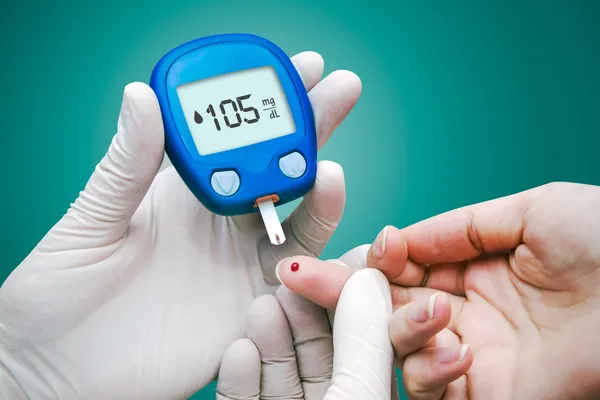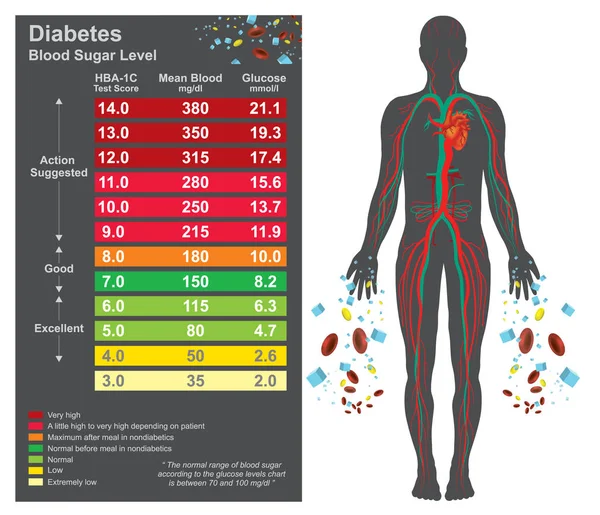Ways to Balancing Your Blood Sugar’ Blood sugar, also known as blood glucose, is the main source of energy for our bodies. It’s the fuel that keeps our cells functioning properly. When our blood sugar levels are balanced, we feel energized, focused, and healthy. However, when they become unbalanced, we can experience a cascade of negative consequences.
Fortunately, we have the power to take control of our blood sugar levels through lifestyle changes and, in some cases, medical interventions. So, why is balancing blood sugar so important? Let’s explore the amazing benefits that await us when we make this vital aspect of health a priority.

Research View on Balancing Blood Sugar for Improved Health: A Consensus
There is a strong consensus among researchers that balancing blood sugar levels significantly improves overall health and well-being. Extensive research across various disciplines supports this claim, highlighting the positive impact of maintaining healthy blood sugar on numerous physiological and psychological functions.
Here’s a breakdown of the key research findings:
Reduced risk of chronic diseases:
- Diabetes: Numerous studies have demonstrated that maintaining healthy blood sugar levels reduces the risk of developing type 2 diabetes, a major risk factor for various health complications.
- Heart disease: High blood sugar levels contribute to the development of heart disease by damaging blood vessels and increasing inflammation. Balancing blood sugar protects against heart disease and improves cardiovascular health.
- Cancer: Research suggests that high blood sugar levels may increase the risk of certain cancers. Maintaining healthy blood sugar levels is associated with a lower risk of developing these cancers.
Improved energy levels and mood:
- Balanced blood sugar ensures a steady flow of energy throughout the day, leading to increased stamina, enhanced focus, and reduced fatigue. This translates to improved productivity and a better quality of life.
- Uncontrolled blood sugar can significantly impact mood, leading to irritability, anxiety, and depression. Balancing blood sugar helps regulate brain function, contributing to improved mood and emotional well-being.
Weight management:
- Maintaining healthy blood sugar helps regulate hormones responsible for appetite and satiety, leading to reduced cravings and improved satiety after meals. This can result in decreased calorie intake and facilitate weight management.
- Additionally, stable blood sugar levels can improve metabolism, allowing the body to burn calories more efficiently and further contribute to weight management goals.
Enhanced immune system:
- Balanced blood sugar supports a healthy immune system, making the body more resistant to infections and illnesses. This is crucial for maintaining overall health and recovering effectively from minor ailments.
Improved sleep quality:
- High blood sugar levels can disrupt sleep patterns, leading to insomnia and fatigue. Stabilizing blood sugar promotes deeper and more restorative sleep, leading to increased energy and improved daytime functioning.
Skin health:
- Uncontrolled blood sugar can contribute to various skin problems, such as acne, eczema, and slow wound healing. Managing blood sugar promotes clearer, healthier skin and faster healing of wounds.
Vision protection:
- Chronic high blood sugar levels can damage delicate blood vessels in the eyes, leading to vision problems and even blindness. Maintaining healthy blood sugar levels protects the eyes and preserves vision health.
Cognitive function:
- Recent research suggests that balanced blood sugar is crucial for optimal cognitive function. Unstable blood sugar levels can impair memory, learning, and concentration. Maintaining healthy blood sugar levels helps maintain cognitive function and protect against age-related cognitive decline.
Overall, the research overwhelmingly supports the notion that balancing blood sugar levels is essential for maintaining optimal health and well-being. By taking steps to manage blood sugar, individuals can significantly reduce their risk of chronic diseases, improve their energy levels and mood, and enhance various aspects of their physical and psychological health.
11 Ways Balancing Your Blood Sugar Can Improve Your Health
Blood sugar is crucial for proper functioning, but when out of balance, it can lead to a cascade of health issues. Fortunately, we can actively participate in maintaining healthy blood sugar levels through lifestyle changes and, in some cases, medical interventions.
But why is balancing blood sugar so important? Let’s delve into the amazing benefits that await us when we take control of this vital aspect of our health.

There are many ways to balance your blood sugar. Here are 11 of the most important:
1. Eat a healthy diet
The best way to balance your blood sugar is to eat a healthy diet. This means eating plenty of fruits, vegetables, and whole grains. You should also limit your intake of processed foods, sugary drinks, and unhealthy fats.
2. Get regular exercise
Exercise helps your body use insulin more effectively. It also helps you lose weight, which can also improve your blood sugar control. Aim for at least 30 minutes of moderate-intensity exercise most days of the week.
3. Manage stress
Stress can raise your blood sugar levels. Find healthy ways to manage stress, such as yoga, meditation, or spending time in nature.
4. Get enough sleep
When you don’t get enough sleep, your body releases hormones that can raise your blood sugar levels. Aim for 7-8 hours of sleep each night.
5. Lose weight
If you are overweight or obese, losing weight can help improve your blood sugar control. Even a small amount of weight loss can make a big difference.
6. Drink plenty of water
Water helps your body flush out excess sugar. Aim to drink 8 glasses of water per day.
7. Limit your alcohol intake
Alcohol can raise your blood sugar levels. If you drink alcohol, do so in moderation.
8. Quit smoking
Smoking can damage your blood vessels and make it harder for your body to control blood sugar levels. If you smoke, quit as soon as possible.
9. Take your medications as prescribed
If you have diabetes, it is important to take your medications as prescribed. This will help you keep your blood sugar levels under control.
10. Monitor your blood sugar levels
Monitoring your blood sugar levels can help you track your progress and make changes to your lifestyle as needed.
11. Talk to your doctor
If you have any concerns about your blood sugar levels, talk to your doctor. They can help you develop a plan to manage your blood sugar and improve your overall health.
By following these tips, you can improve your blood sugar control and enjoy a healthier life.
Here are some additional tips for balancing your blood sugar:
- Eat a healthy diet: Focus on whole grains, fruits, vegetables, and lean protein. Limit processed foods, sugary drinks, and unhealthy fats.
- Exercise regularly: Aim for at least 30 minutes of moderate-intensity exercise most days of the week.
- Get enough sleep: Aim for 7-8 hours of sleep each night.
- Manage stress: Stress can raise blood sugar levels. Find healthy ways to manage stress, such as yoga, meditation, or spending time in nature.
- See your doctor regularly: Get regular checkups and blood tests to monitor your blood sugar levels.
By making these lifestyle changes, you can improve your blood sugar control and reduce your risk of developing chronic diseases.
Remember, balancing your blood sugar is an investment in your long-term health and well-being. By taking control of this vital aspect of your health, you can pave the way for a vibrant and fulfilling life.
Foods That Can Help Lower Blood Sugar Immediately:
While some foods can help lower blood sugar immediately, it’s important to remember that long-term management of blood sugar requires a holistic approach. This includes a healthy diet, regular exercise, and proper medication adherence (if prescribed).
Here are some foods that may help lower blood sugar immediately:
1. High-fiber foods:
- Fiber slows down the absorption of sugar into your bloodstream. This can help prevent blood sugar spikes. Good sources of fiber include:
- Fruits: apples, berries, pears, oranges
- Vegetables: broccoli, carrots, spinach, kale
- Legumes: beans, lentils, chickpeas
- Whole grains: brown rice, quinoa, oatmeal
2. Protein-rich foods:
- Protein can help you feel fuller for longer, which can help you manage your blood sugar. Good sources of protein include:
- Lean meats: chicken, fish, turkey
- Eggs
- Tofu and tempeh
- Nuts and seeds
3. Healthy fats:
- Healthy fats can help improve insulin sensitivity, which helps your body use sugar more effectively. Good sources of healthy fats include:
- Avocados
- Nuts and seeds
- Olive oil
4. Low-glycemic index (GI) fruits:
- Low-GI fruits release sugar into your bloodstream slowly. This can help prevent blood sugar spikes. Good choices include:
- Berries
- Apples
- Pears
- Grapefruit
5. Unsweetened green tea:
- Green tea contains compounds that may help improve insulin sensitivity and lower blood sugar levels.
Here are some additional tips for lowering blood sugar:
- Eat smaller, more frequent meals throughout the day.
- Drink plenty of water.
- Limit sugary drinks and processed foods.
- Get regular exercise.
- Manage stress.
It’s important to note that individual responses to these foods can vary, so it’s important to monitor your blood sugar levels closely and talk to your doctor or a registered dietitian for personalized advice.
Remember, consistency is key to managing blood sugar effectively. By making healthy lifestyle changes and incorporating these foods into your diet, you can help improve your blood sugar control and reduce your risk of developing complications.
Key Takeaways:
- Balancing blood sugar is crucial for overall health and well-being.
- It can lead to numerous benefits, including improved energy levels, mood, cognitive function, and reduced risk of chronic diseases.
- Maintaining a healthy diet, exercising regularly, getting enough sleep, and managing stress are key lifestyle changes for blood sugar control.
- Certain foods can help lower blood sugar immediately, such as high-fiber foods, protein-rich foods, healthy fats, low-glycemic index fruits, and unsweetened green tea.
- Consistency is key to achieving long-term blood sugar management.
- Consulting with a healthcare professional or registered dietitian is crucial for personalized guidance and management strategies.
Sources:
General Information:
Research:
Specific Food Sources:
Additional Resources:






